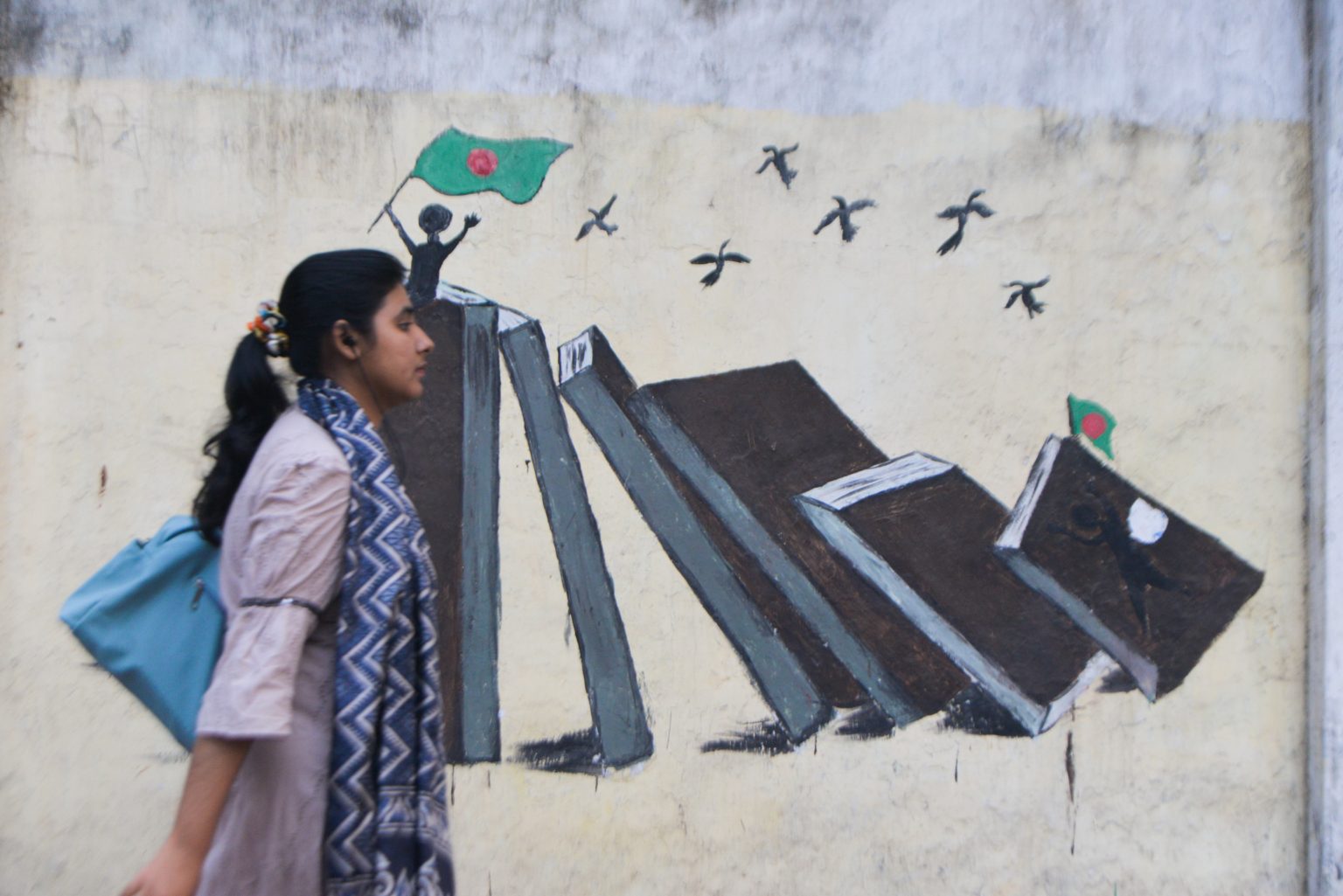Students at public universities across Bangladesh reignited protests demanding the complete abolition of the quota system in government jobs.
For several days in July 2024, students staged demonstrations, blocking roads and highways, and presenting their demands to the government. They argue that the existing system promotes deep-rooted discrimination and undermines merit-based recruitment.
On 5 July 2024, students under the banner of the Anti-Discrimination Student Movement intensified their campaign by organizing sit-ins, protest rallies, and road blockades across university campuses nationwide.
They also announced a boycott of all classes and examinations beginning on 7 July (Sunday), with additional protest programmes scheduled for 6 July (Saturday).
Students from Chittagong University, Khulna University, Hajee Mohammad Danesh Science and Technology University in Dinajpur, Jashore University of Science and Technology, Bangabandhu Sheikh Mujibur Rahman Science and Technology University in Gopalganj, and Mawlana Bhashani Science and Technology University in Tangail actively took part in the demonstrations.
Until 2018, Bangladesh reserved 56 percent of government jobs through quotas: 30 percent for children of freedom fighters, 10 percent for women, 10 percent for candidates from underprivileged districts, 5 percent for ethnic minorities, and 1 percent for people with disabilities.
That year, following large-scale student protests, the government abolished all quotas for higher-grade positions (grades 9–13), allowing those posts to be filled purely on merit. Quotas were retained only for lower-grade jobs (grades 14–20). On 3 October 2018, Prime Minister Sheikh Hasina confirmed that if no eligible candidate was available under any quota, the vacant position would be filled by a general candidate. A government circular issued the following day formalized the reform.
However, in 2021, children of freedom fighters filed a writ in the High Court challenging the abolition of the 30 percent quota reserved for them. On 5 June 2023, the court ruled in their favour, declaring the cancellation of the quota partially invalid.
The government then sought to suspend the verdict through the Appellate Division.
On 9 June 2024, the case was referred to its regular bench, and the Appellate Division, led by Chief Justice Obaidul Hassan, ultimately upheld the High Court’s decision. As a result, the 30 percent quota for children of freedom fighters in grades 9–13 has been reinstated.
In response to this legal outcome, student activists across the country have pledged to continue their movement until the government restores the 2018 reforms.
They also demanded the formation of a new, impartial committee to review and restructure the entire quota system. Nahid Islam, a sociology student at Dhaka University and spokesperson for the protesters, stated that the students would not back down until their demands are met.
As the anniversary of the 2018 student uprising approaches, this renewed movement once again reflected the determination of Bangladesh’s youth to stand up for fairness and equal opportunity in public employment.


